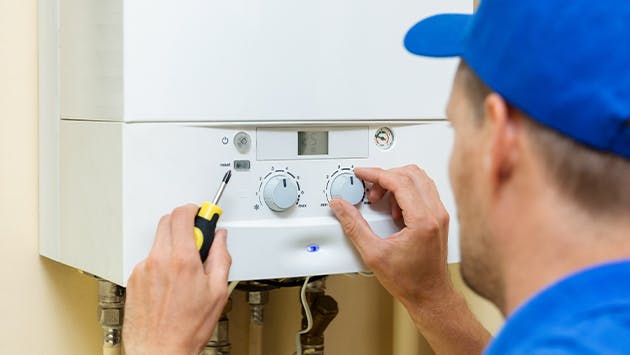Nobody wants to have their boiler break down, especially as we get into winter. It’s something you’ll want to fix as soon as possible, so what could the problem be and what can you do about it? Well, first and foremost you need to get a professional in - boilers are complex and potentially dangerous, and a short blog like this can only give you so much of an idea of what they’re about. There’s no reason you can’t know a bit more about the problem, though, so let’s explore what that might be.
The Signs
There are a quite a few signs that would suggest something’s gone wrong with your boiler. Listen for noises like whistling, banging and clanking, as they would suggest that the boiler’s not working properly. Another thing to look for is the water pressure. A working boiler will keep a steady pressure, so if that becomes irregular, usually when it’s too high, something’s likely broken.
If you have an older boiler, you might have something called a pilot light. This is a small gas flame that is the ignition source for the more powerful gas burner. It should be blue-coloured so if it’s yellow or orange, that’s another sign that something’s wrong. As well as this, any signs of leaks from pipes around the boiler would also suggest it's broken.

Potential Issues
You might be wondering what is causing the issue, then. It’s important to say that unless you’re qualified, you probably shouldn’t try to fix your boiler yourself - it’s way too risky. But there’s nothing wrong with knowing a bit more about how your central heating works. First things first, make sure your boiler is getting all the things it needs to run - gas, water, and especially power. If its power’s off by the mains, then switching it back on is a simple solution that you won’t even need an engineer for!
There are of course more complicated causes for a failing boiler too, such as low water pressure, which prevents the heating from circulating properly. A faulty thermostat can also be an issue - if it’s not communicating with the boiler properly or is set at the wrong time it can prevent your heating from functioning correctly. As well as this, an issue that can occur in winter is a frozen condensate pipe, which will cause your boiler to shut down as a safety measure.
Staying Safe
If your boiler breaks down, you can be at risk of freezing, so you need to make sure you stay safe. It’s important to stay warm, then - stock up on blankets and keep unused rooms closed, while draft-proofing doors. If you have a fireplace, now’s the right time to put it to use, and an electric fire is a good alternative, too. Other than that, make sure you dress up in layers!
For the elderly and the at-risk however, living in a cold house can be much more difficult. Being much more affected by the cold, it can lead to illness quickly and so evacuating them to somewhere warmer is crucial. Don’t underestimate the risk of the cold, and make sure you do everything you can to stay warm!
Fixing the Problem
Hopefully, your boiler is insured, since most insurers have a 24-hour helpline and will arrange to have an engineer sent out to help you. If not, it’s something you’ll want to do anyway since central heating is such an important part of quality of life. As soon as you can, get a qualified professional in. Fixing a boiler yourself is potentially dangerous and can void its warranty, but someone who knows what they’re doing can get it up and running in just a couple of hours on average. It does depend on the cause of the problem, however, so the time it takes to fix is out of your engineer’s hands.
If you need your boiler fixed, we’d be glad to help. As a team of qualified professionals, we’ll fit you with a new, quality boiler and will also keep it maintained so it stays at top efficiency.
